3 reasons why you should never
ignore your fecal impaction
Typically, when a person is in the middle of a fecal impaction, the most common way they deal with it is by simply waiting for the problem to go away on its own. To be fair, we are conditioned to rely on this wait-and-see strategy because it works so often work for constipation.
However, fecal impaction is different.
What most people don’t realize is that the act of simply waiting for your fecal impaction to resolve itself not only allows its damage to quickly grow out of control, it also harms your body in ways you might not even be aware of.
So, let’s look at the 3 dangers of ignoring your fecal impaction and see how waiting even for short periods can put your health and your life at risk:
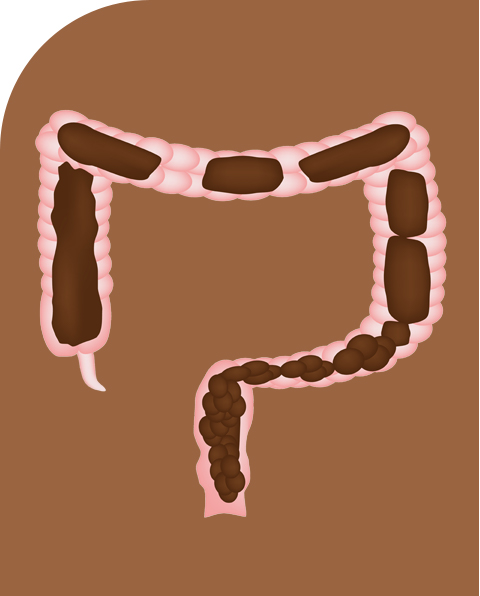
The moment your colon gets impacted with a large stool, your intestine begins to quickly break down
Our digestive tract is meant to be flexible and can accommodate slightly larger than normal stools while still keeping these stools moving using rhythmic contractions. However, during a fecal impaction, the stool gets so large that the intestine becomes unable to move the fecal mass forward, causing it to get stranded at one particular section of your colon. The high intraluminal pressures in this section of the intestine cause your digestive tissue to experience active inflammatory damage.
This is known as stercoral colitis and it is associated with an increased mortality rate.
What’s especially disturbing is that the symptoms of stercoral colitis ten to be vague or even absent and you may not even realize how much damage may be taking place inside you while it is happening.
The longer you go without having a bowel movement, the more injury your digestive tract experiences. Eventually, the sustained fecal pressures can lead to ulcerations, tissue necrosis and even a potentially fatal perforation.
The important thing to take away from this is that regardless of how manageable or bearable your symptoms might seem right now, it is crucial to be aware that every moment that your stool remains impacted, your digestive tract experiences serious ongoing injury. The only way to limit this damage is to take prompt action and get your stranded stools moving again using an effective fecal impaction treatment.
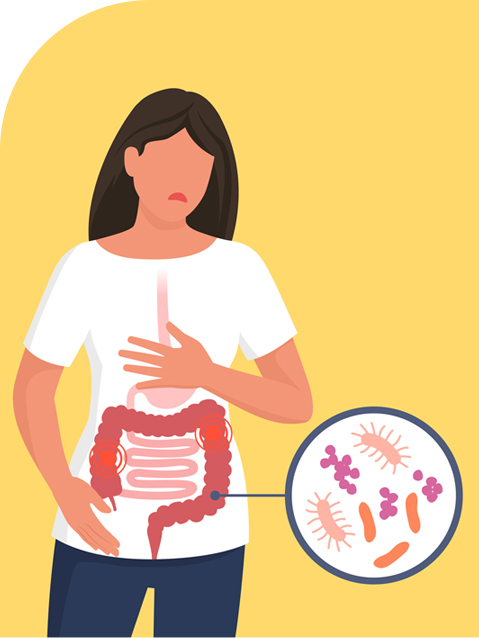
The longer you wait, the higher the chances that your gut will become permanently impaired
Once you develop a fecal impaction, there is a brief window within which it is critical to intervene and fix the problem before there is permanent damage. However, there are 3 things that constantly prevent the sufferer from treating their condition within this narrow window and this ends up causing a long-term impairment of your gut:
- By the time you become aware of your fecal impaction, the damage has already been going on for some time
As mentioned above, the damage of fecal impaction starts the moment your stools get badly wedged in your digestive tract. Note however, this isn’t necessarily when you start to notice the symptoms of an impaction. Stools that are stuck in the colon don’t always show any obvious signs until the gut injury is either extreme or the impaction has reached the rectum.
In either case, your digestive tract can experience silent damage for a while before you notice that you are severely impacted. This underscores why it is so important to act quickly when you realize that you might have a fecal impaction because your gut may have already started breaking down.
- Even after you manage to pass your stools, your digestive tract remains in a state of injury for some time
Most fecal impaction sufferers believe that their problem goes away once they have a bowel movement. However, this isn’t the case at all.
The inner lining of our digestive tract is made up of a sensitive epithelium layer similar to the inside of our mouth. Not only is this delicate epithelium the first part of our gut to get injured during a fecal impaction, it also takes time for injuries to this lining to repair itself.
The more extensive the damage to this digestive lining, the longer it takes to heal.
Research has even shown that once the gut epithelium gets damaged to the point of getting severely ulcerated, it loses the ability to reepithelialize and ends up forming scar tissue instead.
Since scar tissue is non-functional, this part of your gut becomes permanently disabled. Even worse, these kinds of injuries begin to add up with each new fecal impaction episode, impairing more and more of your gut function over time.
- The constant passage of new stools keeps interrupting the healing process of your damaged intestine
By its very nature, our digestive system is always active, continually digesting food and producing new stools. The fact that the inner lining of our gut is constantly exposed to stools moving through our gut also means that each time a hard fecal mass passes by, it aggravates the tissue injuries left behind by the previous impaction.
This means, even after you manage to pass your impacted stools, the wound repair activity in your epithelial lining is constantly interrupted by new stools and once the healing window has passed, your digestive injuries become permanent.
One might think that fasting might solve this issue by giving your digestive system some rest, however it can actually make things even worse by further delaying your gut healing process and disrupting the nutrient supply needed for proper tissue regeneration.
These 3 things combined make fecal impactions far more dangerous than normal constipation because they hide the damage from you in the early stages and continue the damage long after you’ve had a bowel movement
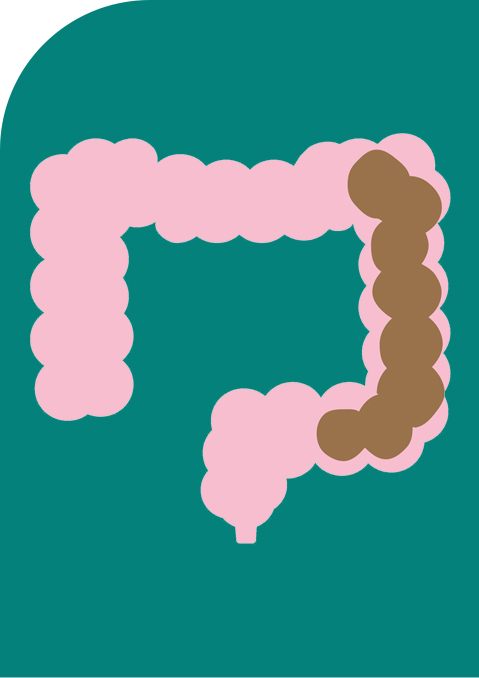
The longer you ignore your fecal impaction, the more likely it is to keep happening again and again, getting progressively worse with time
Fecal impactions are known to be a chronic problem that never really goes away in most sufferers and often causes increasingly severe damage with each new flareup. The reason why your stools are very likely to get stuck repeatedly is because once you’ve had your first fecal impaction, the condition traps your gut in a vicious cycle of damage.
In fact, there are 3 different cycles of damage that cause your fecal impaction to keep recurring throughout your lifetime:
- Cycle of Damage 1: Progressive colon muscle weakening
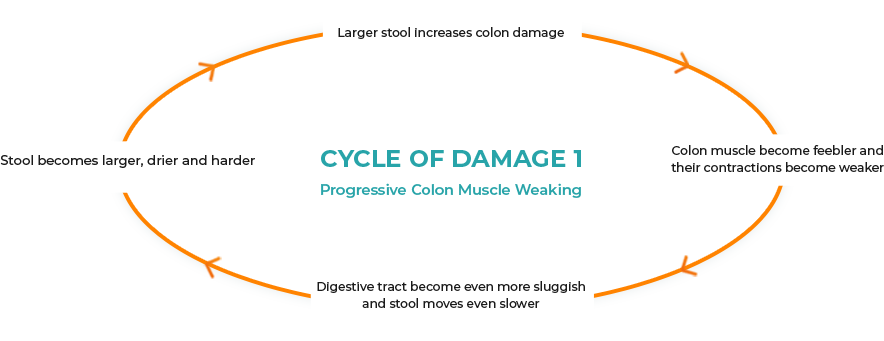
Many people experience increasingly severe constipation before they develop a fecal impaction. During this time their digestive system makes larger stools that not only irritate the sensitive digestive lining, it also weakens the gut muscles responsible fo keeping your stools moving forward.
This causes the stool movement in your digestive tract to slow down which in-turn causes the stools to grow even larger which further weakens your digestive muscle contractions. This cycle keeps repeating until the fecal mass gets so big that your gut becomes completely obstructed and you become vulnerable to a life-threatening perforation.
- Cycle of Damage 2: Increasing Gut Dysbiosis
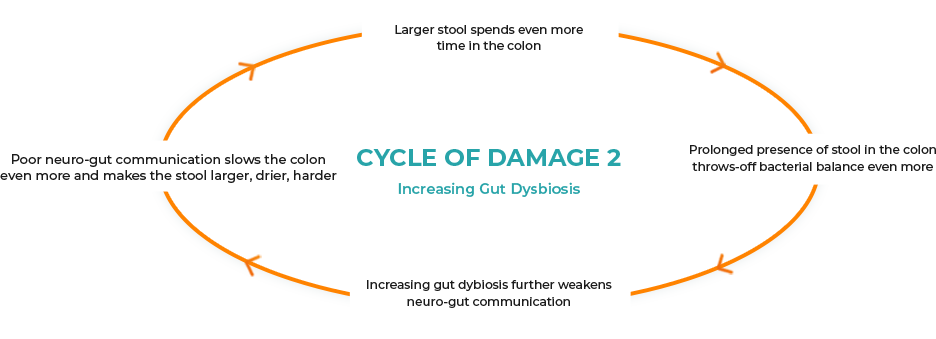
Clinical evidence shows that our gut bacteria constantly communicate with our enteric nervous system and help regulate colon motility. However, during constipation and fecal impaction the prolonged presence of stools in our colon causes an imbalance in our gut microbiota. This ends up altering our neuro-gut communication in a way that slows down our large intestine. This functional slowdown further prolongs the presence of stools in our gut which not only causes these stools to become larger, it also causes further imbalance in our gut bacteria.
This cycle keeps repeating itself with worsening gut microbiota, GI slowdown and stool enlargement.
- Cycle of Damage 3: Worsening defecation reflex
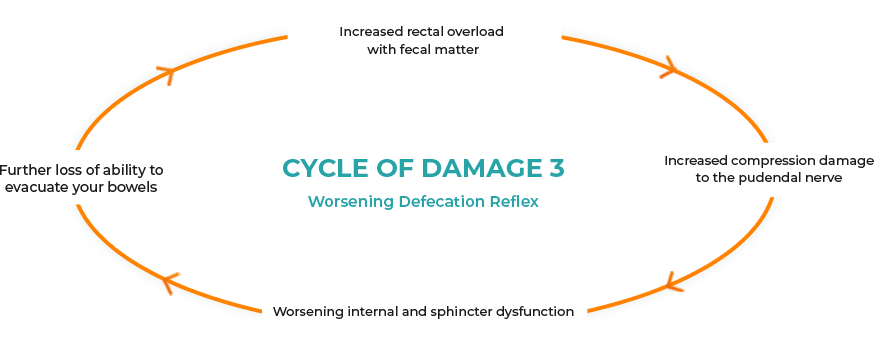
Besides your colon, another place where your stools can get stuck is your rectum. During constipation and fecal impaction, larger stools overfill the rectum causing it to get severely stretched. This causes the nerves around the rectum to experience compression damage.
Among the nerves that get damaged is the pudendal nerve which plays a critical role in helping you sense when your rectum is full and controls the anal sphincter muscles involved bowel movements. This means when a large stool damages your pudendal nerve, you not only lose the sensations necessary to trigger a bowel movement, you also lose the ability to relax the sphincters necessary to push your stools out. This causes more stool to get impacted in your rectum and once again you get trapped in worsening cycle of rectal nerve damage and rectal fecal overload.
Note how all 3 of these cycles of damage are self-feeding. In other words, no matter what the original cause of your constipation or fecal impaction, once the cycle starts, it keeps itself going even if you treat the initial cause.
This points to why most treatments fail to deliver long-term results – they simply treat a singular cause where the actual problem is much more complex. That’s why to truly overcome the stubborn nature of fecal impactions, your treatment should employ a multi-pronged approach that effectively interrupts all 3 cycles of damage simultaneously.
As you can see, there are many things that give a fecal impaction the capacity to devastate your health and your life:
- Even though its damage starts early, it is often recognized very late by the sufferer
- Its damage grows fast and becomes hard to bring under control the longer you wait
- The gut impairment it causes is often permanent and progressively worsens with time
- It is a chronic, recurring problem that eventually becomes an ongoing health burden
- Fecal impactions have a high morbidity and mortality rate
Worst of all, since the damage of fecal impaction is largely silent, the sufferer remains unaware of its true danger until a medical emergency occurs. Remember, ignoring a fecal impaction only multiplies its threat because once you’ve had your first fecal impaction, the condition begins to go through 9 stages of damage and the later you intervene, the harder it is to stop the disease process.
So next, let’s look at these 9 stages of fecal impaction damage and find out what stage your condition has reached. Knowing the answer to this can help you identify which treatments will work best for you and lower your risk of dangerous complications.



